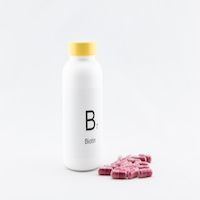High Biotin Dosage Benefits Progressive MS Patients
New research has discovered high doses of biotin vastly improve neurologic function in a small percentage of patients afflicted with progressive MS.

New research has discovered high doses of biotin vastly improve neurologic function in a small percentage of patients afflicted with progressive MS.
Â
To determine the efficacy and tolerability of high dose biotin in persons wit progressive MS, Gary Birnbaum, MD, Minneapolis Clinic of Neurology, and colleagues evaluated three groups of patients with clinically definite MS:
Â
1.    Those with relapsing disease well controlled on disease-modifying therapy yet having progressive disability
2.    Patients with secondary progressive MS, no longer on disease-modifying therapy
3.    Patients with primary progressive disease
Â
At the Americas Committee for Treatment and Research in Multiple Sclerosis (ACTRIMS) 2016 Forum, Birnbaum shared findings from their latest study.
Â
The team prescribed each patient to take one capsule per day of a 300mg dose of pharmaceutical grade biotin. The researches cautiously monitored neurologic exams and blood work for toxicity at baseline and at three-month intervals.
Â
A total of 21 patients were treated – 11 with secondary progressive MS, four with primary progressive MS, and six with stable relapsing remitting, yet progressive MS. Also, 10 patients were on several disease-modifying therapies.
Â
The tests and MRI results showed no serious adverse event, and one patient’s EDSS scores were even reported to improve. Furthermore, another patients noted significant improvement in energy with a 10% improvement in 25-foot timed walk.
Â
According to the findings, “High dose biotin, administered daily to persons with progressive MS is well tolerated and results in improvement of neurologic function is a subset of such individuals, “ concluded the authors.Â